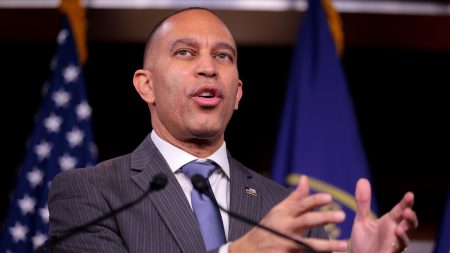Elon Musk’s Department of Government Efficiency Seeks Access to IRS Tax Data System
A recent request by Elon Musk’s Department of Government Efficiency (DOGE) to access the Internal Revenue Service’s (IRS) Integrated Data Retrieval System (IDRS) has sparked significant concern among government officials and privacy advocates. The IDRS is a sensitive system that houses the personal tax information of millions of Americans and is used by IRS employees to review tax filings, issue notices, and update taxpayer records. Access to the system is tightly controlled, and as of this weekend, the request had not yet been granted. However, the mere proposal has raised alarms due to the potential risks of exposing private taxpayer data to external entities.
The Risks of Granting Access to Sensitive Tax Information
Privacy experts and government insiders have expressed alarm over the potential dangers of allowing DOGE, led by Elon Musk, to access the IDRS. Such access could put millions of Americans’ personal and financial information at risk of misuse, theft, or unauthorized disclosure. Critics argue that granting Musk, who has criticized federal judges and called for their impeachment, access to such sensitive data could lead to abuse of power. Musk has also made unsubstantiated claims about federal workers defrauding taxpayers, further fueling concerns about his motivations for seeking access to the system.
Elon Musk’s Criticism of Federal Workers and Bureaucracy
Musk, who is estimated to be the world’s wealthiest individual, has been vocal about his disdain for what he perceives as inefficiencies and corruption within the federal bureaucracy. During a meeting with reporters in the Oval Office alongside President Donald Trump, Musk questioned how some federal workers with modest salaries could accumulate significant net worth. "We’re just curious as to where it came from," he said. These comments have been met with skepticism, as they lack evidence or specific examples of wrongdoing. Despite this, Musk’s DOGE has pushed forward with requests to access federal systems, including the IRS’s IDRS.
Previous Attempts to Access Federal Systems
This is not the first time DOGE has sought access to sensitive federal systems. Earlier this month, the department requested access to the Treasury Department’s vast federal payment system, which manages trillions of dollars in government expenditures. This request led to a lawsuit filed by 19 states and was temporarily blocked by a federal judge. Additionally, a DOGE staffer reportedly visited the IRS last Thursday to discuss how the agency collects and manages data, though it is unclear whether this individual explicitly requested access to the IDRS.
Transparency and Accountability Concerns
Musk has defended DOGE’s actions by claiming that the department operates transparently, posting its activities online. However, a review of the DOGE website reveals limited information, primarily listing canceled government contracts and a vague message about "receipts coming over the weekend." Privacy advocates like Elizabeth Laird, a former state privacy officer now with the Center for Democracy and Technology, have criticized the move, arguing that taxpayers trust the government to handle their sensitive information securely. "This reporting brings into serious question" whether that trust is being upheld, she said.
Legal and Ethical Implications
The IRS rulebook explicitly states that access to the IDRS is restricted to authorized personnel with a legitimate business need. Unauthorized access, disclosure, or inspection of taxpayer records is a federal crime punishable by fines, imprisonment, and termination of employment. While a district court judge has temporarily blocked DOGE’s access to the Treasury Department system, another ruling has allowed the department to access data from the Department of Labor, Department of Health and Human Services, and the Consumer Financial Protection Bureau. This inconsistency highlights ongoing legal and ethical challenges surrounding DOGE’s efforts to gain access to federal data systems.
In conclusion, the DOGE’s request to access the IRS’s IDRS has raised significant privacy and security concerns. While the immediate access has not yet been granted, the broader implications of Musk’s efforts to gain access to sensitive federal systems continue to spark debate. As the situation evolves, it remains to be seen whether the courts and federal agencies will prioritize taxpayer privacy and security over the ambitious goals of Elon Musk’s Department of Government Efficiency.















